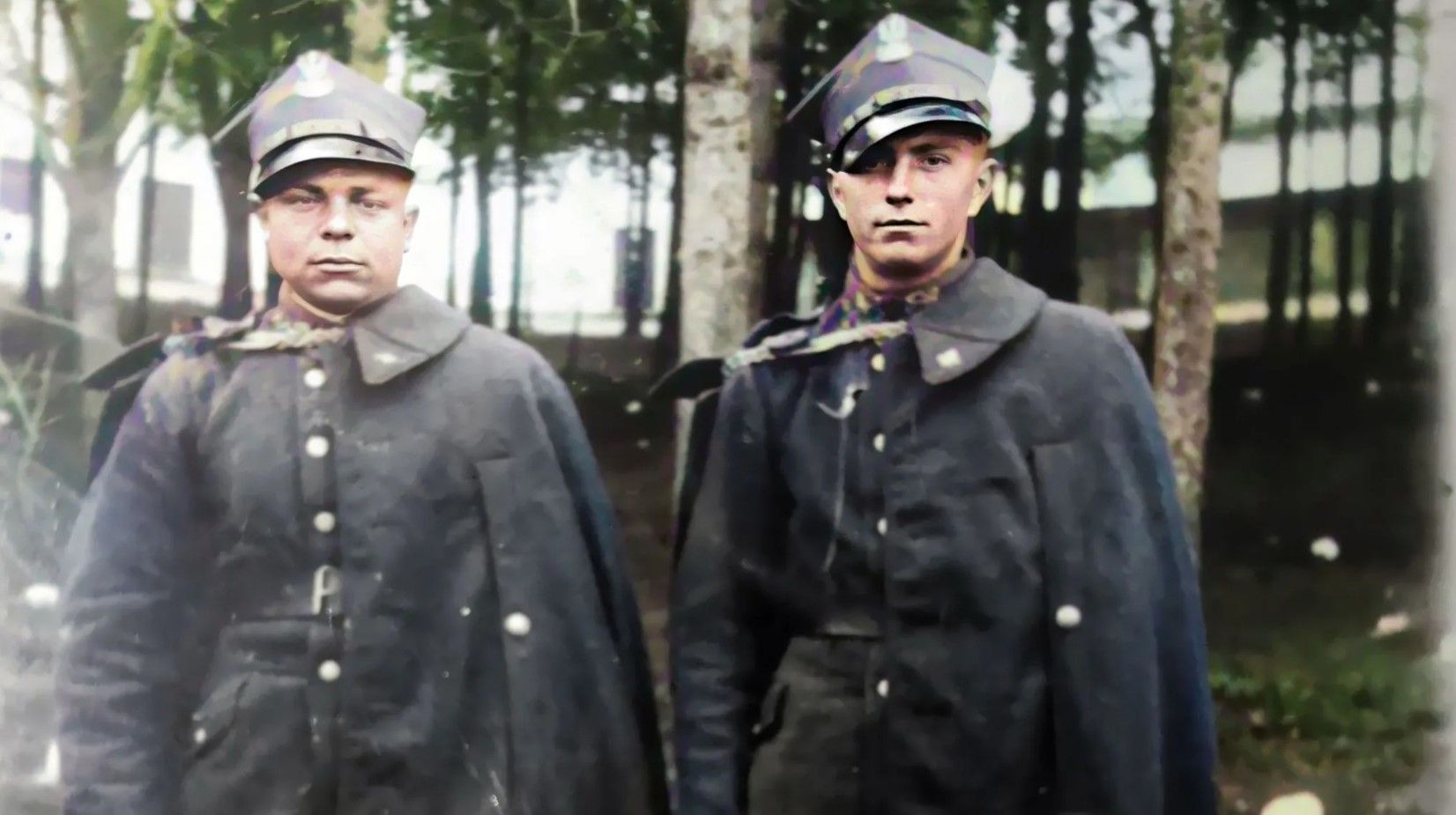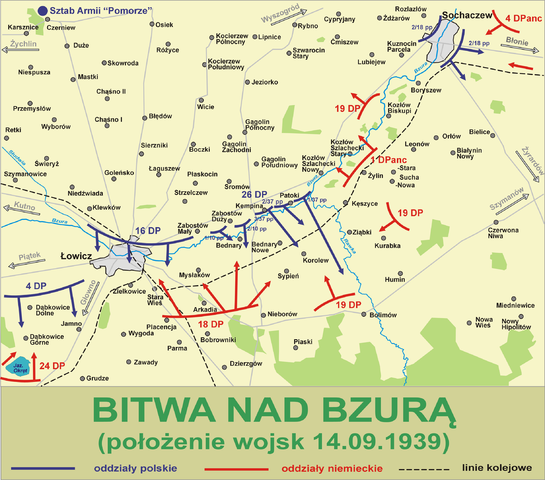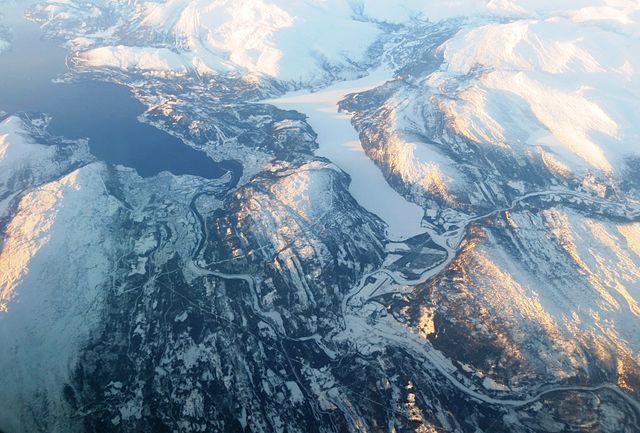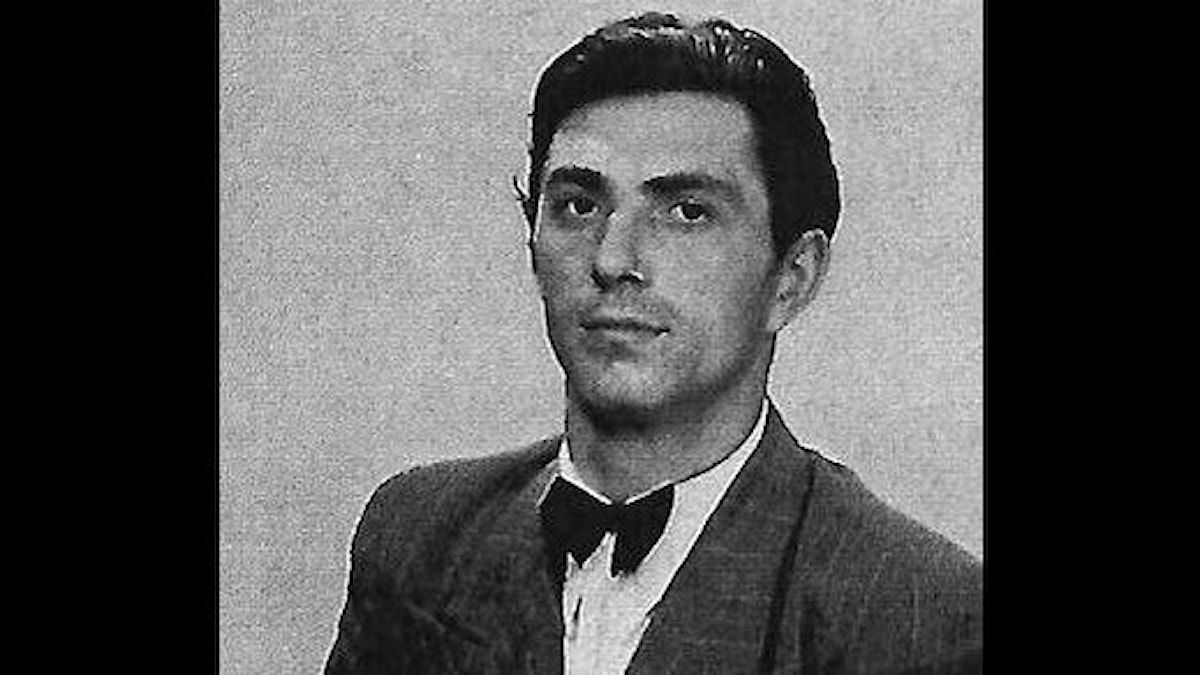
👨👩👧 This is why the world is getting better and better
The story of Polish prisoner of war and a Norweigan farmer shows why the world is getting better.
Share this story!
I don't know if you can call it luck.
It was the middle of September 1939. Tadeusz Zbozil was a soldier in the Polish army and took part in the Battle of Bzura, in the counter-offensive against the Nazis.
The horses that pulled a cannon were unruly, and the coachman couldn't get them in order. Tadeusz, who was a seasoned horseman, stepped forward and helped. An officer saw what happened and told Tadeusz to take care of the horses, and the coachman to take a rifle and head for the front line.

Because the artillery pieces were heavy, they often got stuck in the mud and fell behind the faster infantry.
All soldiers who reached the front line were killed. Even the coachman. Those who came after, were instead captured by the Nazis. Including Tadeusz.
I don't know if you can call it luck.

Tadeusz Zbozil ended up in a so-called labor battalion and was forced to work for the Germans. Among other things, he built bunkers in Berlin.
When they told him to serve in the German army, he refused. As punishment, he was shipped to Norway, in March 1942. There he ended up in a harsh labor camp in northern Norway, near Mo i Rana.
On one occasion, he and about ten other prisoners were working a few miles outside the camp - and there, Tadeusz saw the chance to escape. The Swedish border was not that far away. But the terrain was inaccessible, the mountains high and it was cold. Mo i Rana is just south of the Arctic Circle.

Despite the dangers, Tadeusz and a fellow prisoner, Sauter, decided to try. One evening when the Germans had partied a little, they took the chance. They threw down the axes and ran straight into the forest - in the wrong direction.
It was a conscious maneuver. They understood that the Germans would first look in the direction of Sweden. The trick gave them a head start, but soon they heard the barking from the German shephards. To fool the dogs, they waded into a lake and hid on a small island, until they heard the dogs move away.
But wet as they were now, the cold weather became an even more dangerous enemy. They placed grass in their pants to try to keep warm and set off for Sweden.
They approached the border and found a small farm. They had heard of Norwegian farmers helping prisoners of war to escape. But was this farmer one of them? They had to hope his heart was in the right place.
Luckily he was among the many Norwegian farmers who risked their lives to help. Tadeusz and Sauter were allowed to sleep in his barn, he gave them food and walked with them to the Swedish border.
Run zig-zag across the border, he instructed them. If the Germans see you and shoot, you will be harder to hit.
Teddy
No one saw them and Tadeusz and Sauter made it across the border. After a while, they found a Swedish outpost and were taken care of by Swedish troops.
Tadeusz tried to join the Polish army in exile, but was rejected. Instead, he learned to weld and later started a mechanical workshop together with two Swedes. It still exists today with around twenty employees.
Tadeusz is difficult to say and even more difficult to spell, so his name was naturalized into Teddy.

In 1950, Teddy was supposed to attend a dance. He was just going to take a little nap first. But he overslept and only woke up when the dance was almost over. He quickly changed his shirt and hurried there.
That was lucky.
There he asked a cute Finnish-Swedish girl named Elsa, if she wanted to dance.
The following year they had a little daughter, Evabritt. She is my mother. Elsa is my grandmother and Teddy is my grandfather.
Why the world is getting better
The world is getting better and better. We become richer, better educated, live longer, drink cleaner water, eat better food and are happier. Not everyone and everything gets better all the time. That would be magic, as Steven Pinker says. Sometimes we experience major setbacks. Wars and the number of deaths in wars have decreased in recent decades, but then Putin invades Ukraine.
Something can be bad, and at the same time become better, Hans Rosling reminded us.
However, the positive trends have remained strong for many years.
Why?
The answer can be found in a Norwegian farmer outside Mo i Rana during the Second World War.
The vast majority of people are good. The vast majority of people wake up in the morning and want to contribute something positive. The vast majority do not want to treat others badly, do not enrich themselves at others' expense, and do not do more harm than good.
We see that every day when billions of people make small decisions that make the world a little better. Therefore, we see how life on earth is getting better and better, step by step.
We sometimes see it in a form of extreme courage. Like when a Norwegian farmer risks his life to help two Polish prisoners of war. Just because he is human and they are human. They had never met before. He won nothing from it. They never met afterward.
It's not luck.
It is humankind.
Mathias Sundin
Editor-in-Chief
70 years after Tadeusz fled to Sweden, I met a pretty girl named Emma. Together with her, I had a son. His name is Theodore, but we call him Teddy.
By becoming a premium supporter, you help in the creation and sharing of fact-based optimistic news all over the world.


